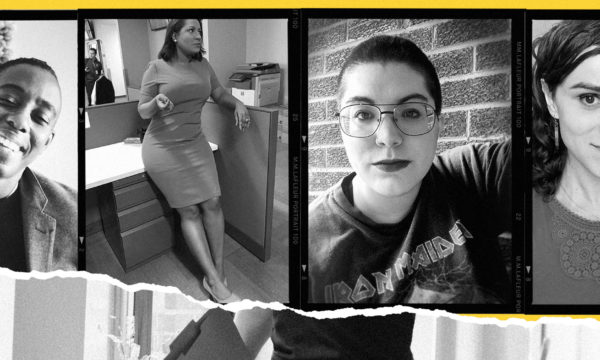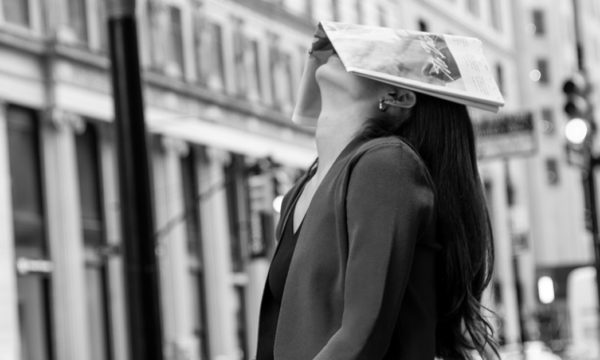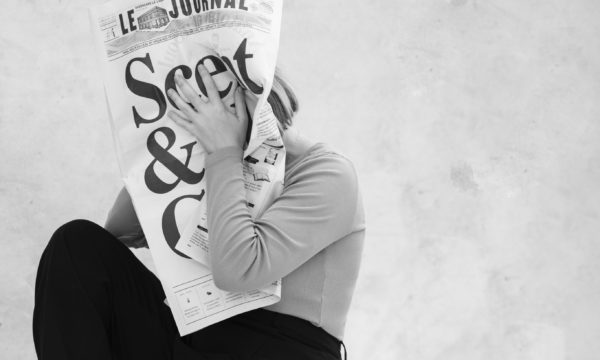
Photo: Miss Universe Facebook page
For Black Women, Reclaiming Joy Is a Radical Act
“For far too long, Black women have nurtured our communities. It is time we were nurtured.”
Want more M Dash?
Sign up for our weekly newsletter.
Thank you!
The recent death of Former Miss USA Cheslie Kryst shocked us all. Having witnessed her brilliance and glamour in the historic 2019 Miss USA pageant, hearing of her suicide brought a familiar pain—a pain that, too often, Black women mask under the guise of strength in a world that expects us to roll with the punches.
To me, (and likely, the rest of the world), Cheslie was a rockstar: a multi-hyphenate queen with extensive credentials and an infectious spirit. Her groundbreaking triumph with four other Black pageant queens was not only a win for her, but a win for all of us. Revenge scrolling through my Twitter, I was heartbroken when I read the news. Of course, I was in denial. I wanted so badly for the headline to be a reputation-ruining mistake from TMZ, but the confirming reports brought a larger reality to the forefront: Black women are suffering. Cheslie was suffering, and we never noticed, because Black women are expected to suffer.

Photo: Hollywood Life
Black women deserve better. We deserve joy.
Society demands Black women to be resilient and adhere to unattainable expectations of perfection. Being “strong, Black women” is killing us—literally. Cheslie’s tragic death reminds us that depression for Black women is frequently high-functioning and silent, and often ends in tragedy. Suicide is a complex endemic that has touched us all, and in addition to the social stigmas of mental health in our country, the effects are only intensified by cultural factors.
The Health and Human Services Office of Minority Health reports that Black Americans are 10% more likely than white adults to experience serious psychological distress, and only 30% of Black American adults with mental illnesses get help each year, compared to the U.S. average of 43%. For Black women, the stakes are even higher. Dealing with racism and gender discrimination, Black women have an increased risk of major depressive disorder. In a study done by the Office of Minority Health, 11% of Black women feel like “everything is an effort” compared to 6% of white women. To make matters worse, our healthcare system denies access to mental health care to those who are most vulnerable. The barriers of cost, geographic accessibility, and lack of culturally sensitive professionals make for a long road of progress before Black women can feel supported in their mental health journeys.
Having to be “superwomen” as our well-beings are dismissed and our lives are taken by state-sanctioned violence, Black women are in a constant state of turmoil. We are competing in races in which we are encouraged to lose and outperforming in spaces where we are overqualified and overlooked. The obstacles are too many, and we are expected to veil our fury; but we have to change the narrative—for our own sake.
“Black women deserve better. We deserve joy.”
In all of our justified anger, what does it take for us to honor our joy?
Joy is a privilege that is often denied to many of us in the most necessary of times. As we suffer in personal and professional spaces, we must take the time to hold ourselves and our communities accountable for preserving our mental and emotional health. Fortunately, these conversations are happening. From online podcasts easing your every anxiety to teletherapy platforms curated to be your mental health matchmaker, spaces are blossoming for Black women to be sad, exhausted, and joyous.
Joy for us can be sporadic and fleeting—so much so that exhibiting true joy is a radical act, a flex I wish for every Black woman in line before and after me.
We now live in a time where Black women’s mental health is a larger conversation. However, the conversations must continue to grow intergenerationally. Our mothers and grandmothers deserve to shed the weight of our nation’s devastations and bask in the serenity of joy. For far too long, Black women have nurtured our communities. It is time we were nurtured. We deserve to rid ourselves of the pressures of perfection. We deserve the same compassion extended to those who do not look like us. We deserve to smile unabashedly when we are joyous—even in the face of a world that would rather see us sulk.
What does joy look like in this world of pandemic pandemonium? Joy looks like whatever you imagine. Joy is taking yourself on a dinner date (just because). Joy is learning that new language you’ve been putting off for years. Joy is laughing out loud. Joy is wearing that bright lipstick that’s been buried in your makeup bag to your next Zoom meeting. Joy is trying the new Pinterest recipe you’ve had screenshotted in your camera roll for months. It’s knowing that some days, you and joy are estranged—and persevering on the journey to get reacquainted.
“Joy for us can be sporadic and fleeting—so much so that exhibiting true joy is a radical act, a flex I wish for every Black woman in line before and after me.”
Joy is essential and abundant. Black women deserve to relish in joy completely, but we also deserve to honor when our joy flees. If only for a moment, feel it thoroughly. Being strong and resilient can coexist with being depressed and overwhelmed, but creating the boundary and giving ourselves grace is where our self-preservation thrives.
In my experience, joy has been a learned practice. I make sure to claim even the slightest bits of joy every day, because I know (all too well) the detriment that awaits if I deny my joy. At 22 years old, I have learned there is no such thing as “being good at joy.” Some days, joy is hard to come by. Other days, I am joy personified. Impenetrable to outside forces, joy is my armor.
Lately, when I think of Cheslie, I think of joy. The joy she felt in her legendary moments, the joy she brought to the culture after her historic win, and the joy she had yet to experience in this life. An inspiration to millions of Black girls, she leaves her legacy of poise and self-determination. In her short life, she used her platform to fight discrimination in her communities and in pageantry. She taught us to follow our dreams and never limit ourselves to one title. She conquered the world of law, pageantry, and journalism (mentored by the incomparable Gayle King, might I add) with incredible talent. Cheslie Kryst, a beauty and a force to be reckoned with, will be greatly missed.










